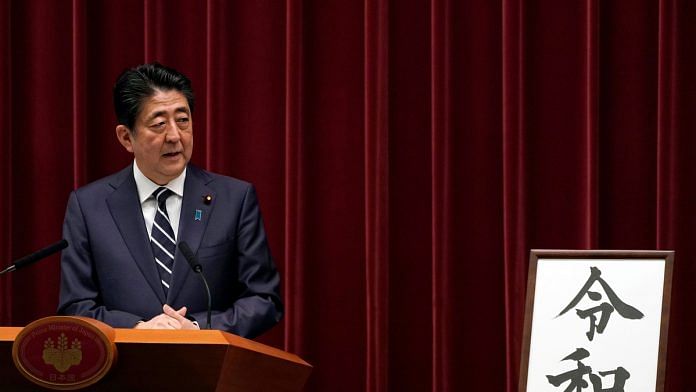New Delhi: India Friday announced that the annual summit with Japan, scheduled to take place next week in Guwahati, has been postponed.
The spokesperson for the ministry of external affairs, Raveesh Kumar made the announcement on Twitter, saying both nations had mutually agreed to defer the annual bilateral summit.
With reference to the proposed visit of Japanese PM @AbeShinzo to India, both sides have decided to defer the visit to a mutually convenient date in the near future.
— Raveesh Kumar (@MEAIndia) December 13, 2019
Japanese Prime Minister Shinzo Abe was scheduled to arrive in Guwahati on Sunday on a three-day India visit to hold summit talks with PM Narendra Modi.
Guwahati has been witnessing widespread violent protests against the citizenship law that was passed this week.
The protests have led to a curfew being imposed in the region, the Army moving in to maintain law and order, suspension of internet connectivity, and trains and flights being cancelled or delayed.
Two people died on Thursday after police opened fire on protesters who defied the curfew to take to the streets. The previous day, protesters pulled down hoardings erected in central Guwahati to welcome Abe.
A report by Japan’s Jiji Press had earlier said PM Abe was considering cancelling the visit given the the deteriorating security situation in Guwahati.
‘Tokyo was never keen on Assam for the summit’
According to official sources, Tokyo was opposed to Guwahati as a summit venue since the very beginning and wanted it to be held in New Delhi as was the practice.
Sources said officials in Japan were “jittery” about Assam since protests emerged in the state over the issue of the National Register of Citizens (NRC) earlier this year. But the Modi government was keen to show its strength in the state post its win in the general elections in May.
Also read: Modi, Citizenship Bill gamble & Himanta Biswa Sarma come together to help BJP in Assam
Not the first time
Summit-level talks between the two countries were postponed once before in 2012 when Japan held a general election.
“This is not the first time that the India-Japan Summit has been postponed. It has happened in November 2012. The dates are mutually agreed upon giving security the first priority,” said Deepa Gopalan Wadhwa, former Indian envoy to Tokyo who was posted there from 2012-2015.
Japan and India were expected to discuss several issues, including the high speed railway (HSR). Of late, the $12-billion HSR project, popularly known as the bullet train project, has come under question with the newly elected Shiv Sena-NCP-Congress government in Maharashtra deciding to review the feasibility of the project.
“I think the HSR project is a work in progress. All the technical processes are now over. The tendering will commence soon. Besides, India and Japan convergence can been on an initiative like the Indo-Pacific,” Wadhwa said.
Japan is also upset with India’s decision to walk out of the ASEAN-led mega-trade pact — Regional Comprehensive Economic Partnership (RCEP).
All these issues were discussed at the recently concluded inaugural round of India-Japan 2+2 dialogue in New Delhi.
Also read: RCEP freeze continues, India, Japan make no progress on sticky bilateral issues




Colonization of India by the cowbelt region. Vision of India is dead and therefore India should not exist. Self determination should be a right and Whoever wants ro leave Indian Union should be allowed to go.
Unfortunate. However, there could be a cost benefit analysis of such intense diplomacy. There have been over a hundred foreign visits. Presumably an equal number of visits from foreign HoGs. Roughly one summit every ten days. Whether in terms of enhanced trade, stepped up long term investment, other major improvements in bilateral relations with important countries.